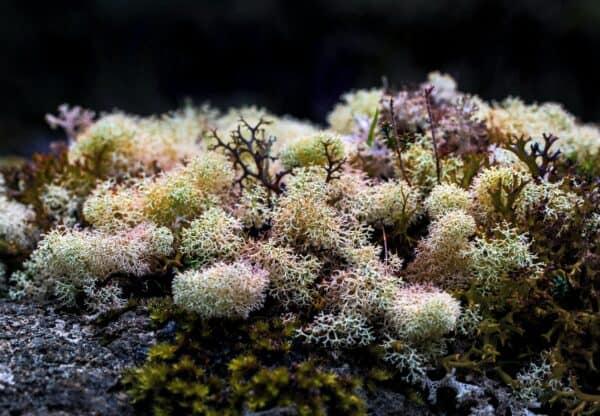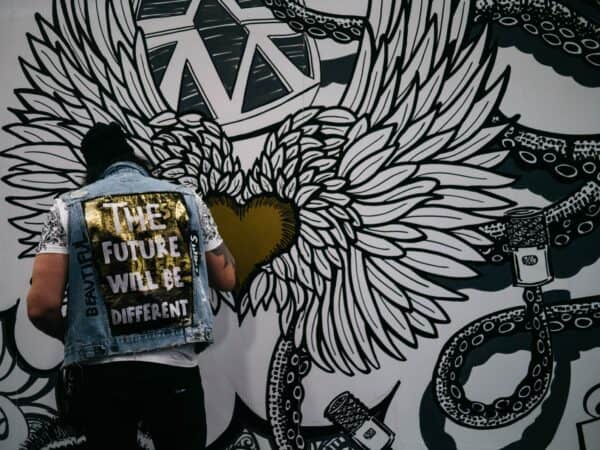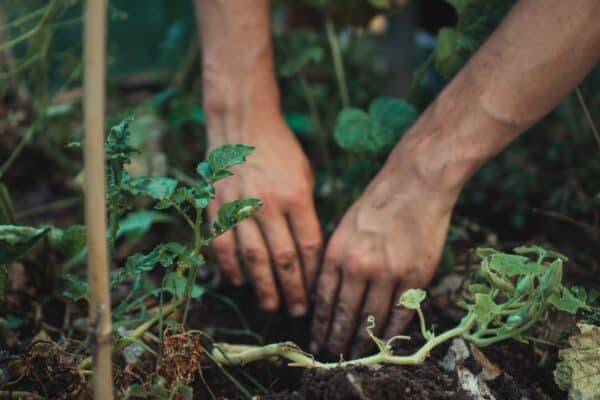This article was first published on the platform Thrive Global on the 1st October 2021.
There isn’t a single sector of society that isn’t talking about RESILIENCE right now, yet there are more and more people rejecting it.
Why?
A meme went round the internet the other week.
It said:
“I dream of never being called resilient again in my life. I am exhausted by strength. I want support. I want softness. I want ease. I want to be amongst kin. Not patted on the back for how well I take a hit. Or for how many”
Tons of people cheered it and chimed in.“Yes! I don’t want to be resilient either!”, the chorus went.
Reading it, I realised that RESILIENCE is yet another concept that has been hijacked and misused in ways that make people feel unseen, unheard and disempowered.
It made me want to start a conversation about what it really means to be resilient beyond ‘being prepared’, ‘grit’, and ‘keep calm and carry on’ – all of which keep many of us in unhealthy relationships (e.g. co-dependency, fierce independence), fear (e.g always anticipating threat) and distracts us from looking at and dismantling what people have no choice but to develop resilience towards (e.g. surviving systemic oppression).
So the other week I asked a question on my social media: “What do you associate with the word RESILIENCE”?
Many wonderful, thoughtful, thought-provoking and varied responses poured in.
As an old social science researcher, I love collecting community responses, working with research, listening to the public debate on a topic, and then synthesising it into an offering.
The RECLAIMING RESILIENCE PROJECT has been one of these opportunities.
Diving into the world of resilience has been fascinating, enlightening and full of hope.
Here’s some of what I have learned:
The NATURE of the conversation on RESILIENCE is changing.
The pre-2021 conversations and definitions on resilience, mostly all have one thing in common: SURVIVAL.
This includes ‘being prepared’ – so that we can survive.
They have also included trauma responses such as adaptivity – often described as resilience but which simultaneously keeps us in toxic relational and systemic situations, precisely because of our ‘resilience’ to these environments.
That resilience has been discussed in the context of survival is perhaps unsurprising.
When we soberly look at the world we have created, it’s one where most of the population is living in a constant state of crisis of varying degree and variety.
Even in wealthy and peaceful nations, people are stressed out, burnt out, overwhelmed by the pressure of “doing it all and having it all” and looking unscathed and slim and perfect in the process – living disconnected from their health, happiness and wellbeing as a result.
When we focus on resilience as survival, and praising people for their ‘resilience-as-survival–capacity‘, the concept of resilience cannot evolve. And we remain, perhaps unconsciously, stuck in a vision for humanity that is still about surviving.
Because when we focus on developing resilience towards a threat, we often distract ourselves from looking at the threat itself and how we can intervene or remove the threat, including systems and structures that are unhealthy and not working for everyone. (For example a working environment that leaves everyone exhausted, or discriminates against some people in the team).
It’s like when we tell girls and women to not wear a low-cut top in order to ‘become resilient’ towards sexual assault, instead of making sure that boys are raised to see girls and women as equals, rather than objects.
Or when when we talk about becoming resilient towards effects of the climate emergency, instead of radically and swiftly changing the system that creates it.
People are rising up and speaking out about how our outdated view of resilience is keeping us in the status quo.
The definition of resilience as broadly meaning survival combined with “gold plating grit” isn’t sitting right anymore.
We are no longer comfortable with keeping calm and carrying on, no matter how many hits come our way.
There is also a culture and language around resilience as survival that often wants to fast-forward the process by which we may navigate a crisis to the s/hero’s celebration at the end.
The messy middle of ‘bouncing back’ is often dark and non-linear and not neatly wrapped up in a one-size-fits all step-by-step process, making it uncertain and terrifying all at the same time.
This means that we have created a way of life where uncomfortable – but essential – emotions are pushed down, numbed out and ignored in the name of ‘being strong’, ‘moving on’ and ‘bouncing back’.
We close the door, lock it and throw away the key.
In the name of resilience.
There is a rising resentment towards all of this.
And there is a rising resentment amongst people and communities who have no option but to ‘become resilient’ due to the societal systems and structures in place that segregate, exclude, reject, oppress.
Communities where resilience has become synonymous with defiance, of survival against all the odds, against what the system wants.
This is what people in my community shared:
“Resilience is not something I would have chosen”
“I have strong reservations about this word [resilience]. I feel it is over-used and all too often lacking in recognition of underlying context. A kind of whitewash of trauma and a pat on the head in place of deep listening and purposeful intervention. So often, the “resilient” person is the one who has the most to lose by not performing the survival strategy masquerading as resilience, the consequences of which could be devastating”
“Resilience in today’s world often teaches suppression as a guise for “strength”. It’s supposed to mean being more like a rubber band. Snapping back. Which is also a lie. After trauma we are changed. We don’t snap back. It’s a false expectation that makes a lot of people feel worse.”
The energy around this resentment is not self-victimisation.
No, instead there is something quite the opposite, something deep and powerful and disruptive.
A volcano of deep, ancient human dignity wanting to be heard.
When I asked my community for their associations with resilience, they broadly fell into 3 categories.
1. Associations with survival
2. Resentment towards the ‘old’ connotations with resilience
3. A new, empowering definition of resilience
When I looked at both the responses that fell into the category of ‘a new definition’ and recent research on human resilience, what emerged was something beautiful and moving: namely a deep sense of WORTHINESS.
And this deep sense of worthiness is tired of surviving.
Tired of adapting to conditions, systems and structures and mindsets and behaviours that shouldn’t be there in the first place.It wants a bigger and bolder vision for humanity. For ALL of humanity.And our planet.
It wants a vision for THRIVING.
Because when we thrive we are PREPARED.
When we thrive, truly thrive, we don’t do that on the expense on any other people or the planet.
When we thrive, we are agile, and we have tenacity.
The deep sense of worthiness enables us to work with any crisis from the vision of THRIVING rather than SURVIVING.
That means that HOW we navigate any crisis or threat, is going to look different to when our vision is one of SURVIVAL.
It’s radically shifting the conversation from adapting and responding, to looking at creating a different way of life where more of us are thriving.
A deep sense of self-worth and a vision for thriving means that we will [examples of community responses: ]
Advocate for ourselves
Hold ourselves and be held
Feel deeply through emotional pain
Know our needs and how to meet them and ask for them to be met
Parent our inner child
Be self-compassionate
Hold space for all of ourselves
Trust ourselves
Care for ourselves on every level: emotional, spiritual, physical, mental (‘spiritual’ here in the broadest form including things like our connection to Nature)
A sense of “I can do this, and it matters because I matter”
To be in the present moment
Follow our body’s lead over where or how we think we should be and slowing down
Intentional trauma recovery, learning to regulate our nervous system
The understanding that a rupture is not the end of the world and it can be repaired
Getting things wrong is ok because you know you are still lovable
Ability to navigate uncomfortable conversations where we may need to look at parts of our selves that bring up feelings of guilt or shame
Listening
Acceptance
Reflection
Being curious
Trying new things
Willing to share things that are not perfect
Taking time out to just be
The willingness to grow
Honesty with ourselves even when it’s not pretty
Questioning where we are versus where we’d like to be and taking action
Patience
Forgiveness
A knowing all can be healed
Being connected to a purpose bigger than ourselves
Boundaries
Interdependence
Living in harmony with the lands
The list goes on.
When I read this list, it makes me want to breathe a sigh of relief.
To me, this sounds like the very essence of being human, living with an open heart. Our whole hearts.
The essence of being a truly resilient human, able, agile and ready to weather the storms of life.
The essence of navigating life as a human being in a way that isn’t simply about surviving, but that holds the bigger vision of thriving.
Every step of the way.
A vision of thriving humans.
A thriving Earth.








